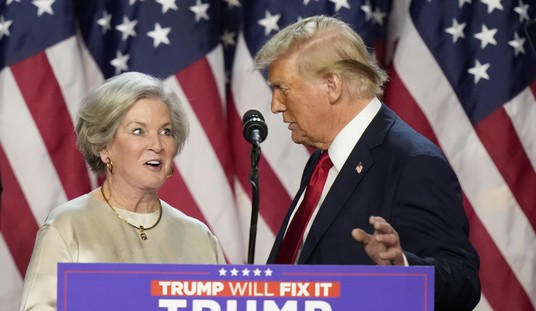It's time to blow the whistle on two erroneous statements that opponents and proponents of the health care legislation being jammed through Congress have been making. Republicans have been saying that never before has Congress passed such an unpopular bill with such important ramifications by such a narrow majority. Barack Obama has been saying that passage of the bill will mean that the health care issue will be settled once and for all.
The Republicans and Obama are both wrong. But perhaps they can be forgiven because the precedent for Congress passing an unpopular bill is an old one, and the issue it addressed has long been settled, though not by the legislation in question.

That legislation was the Kansas-Nebraska Act of 1854. Its lead sponsor was Stephen A. Douglas, at 41 in his eighth year as senator from Illinois, the most dynamic leader of a Democratic Party that had won the previous presidential election by 254 electoral votes to 42.
Douglas' legislative prowess far exceeded that of current Senate Majority Leader Harry Reid. To hold together his 60 Senate Democrats, Reid simply dispensed favors -- eternal Medicaid financing for Ben Nelson's Nebraska, a hospital grant for Chris Dodd's Connecticut, more rural health money for Byron Dorgan's North Dakota and Montana's Max Baucus.
Douglas did something far more difficult. He got the Senate to pass a bill some of whose provisions were supported by half of the Senate plus Douglas and some of which were supported by the other half plus Douglas. After passage, Douglas spent a day getting drunk -- a consolation unavailable to the teetotaling Reid.
The issue that Douglas said the Kansas-Nebraska Act would settle forever was slavery in the territories. His bill repealed the 34-year-old Missouri Compromise prohibiting slavery in territories north of Arkansas and substituted popular sovereignty -- territory residents could vote slavery up or down.
We cannot say with assurance that the Kansas-Nebraska Act was unpopular -- Dr. Gallup didn't start polling until 81 years later. But the results of the next election were pretty convincing. The Republican Party was suddenly created to oppose the Kansas-Nebraska Act, and the 1854-55 elections transformed the Democrats' 159-71 majority to a 108-83 Republican margin. Democrats didn't win a majority of House seats for the next 20 years.
Recommended
On the health care bill, there can be little doubt about public opinion. Quinnipiac, polling just after the Senate voted cloture, found Americans opposed by a 53 percent to 36 percent margin. Polls suggest that Democrats may suffer as much carnage in the 2010 elections as they did in 1854.
Nor did the Kansas-Nebraska Act settle the issue it addressed. Pro-slavery and anti-slavery settlers fought it out in "bleeding Kansas," and Douglas felt obliged to break with the Democratic administration and disown election-stealing by the pro-slavery side. The issue roused a former congressman named Abraham Lincoln to re-enter politics, and he beat Douglas in the popular vote (but not in the legislature) in 1858 and then was elected president in 1860.
A health care bill like the Senate's is unlikely to settle all health care issues, either, though the ensuing political struggles will stop somewhere short of civil war. "We aren't done talking about health care," writes Atlantic blogger (and Obama voter) Megan McArdle. "We haven't even really started. Our budget problems are as big as ever, and we just used up both political capital, and some of our stock of tax increases and spending cuts, to pay for something else."
The Senate bill contains provisions that are likely to be revisited. Its language channeling federal and consumer dollars to abortion coverage is opposed, according to Quinnipiac, by a 72 percent to 23 percent margin. Its provision establishing an Independent Medicare Advisory Board and stating that it cannot be abolished except by a two-thirds vote of the Senate is of dubious constitutionality, and even if upheld in a court of law may not pass muster in the court of public opinion. Since when has Congress passed laws that cannot be repealed?
Kansas-Nebraska was an attempt to settle a fundamental issue by legislative legerdemain and political trickery. The Democrats' health care bills are an attempt to settle a fundamental issue by partisan maneuver and cash-for-cloture. As Stephen Douglas learned, such tactics can work for a while, but the country -- and the Democratic Party -- can end up paying a heavy price.

























Join the conversation as a VIP Member